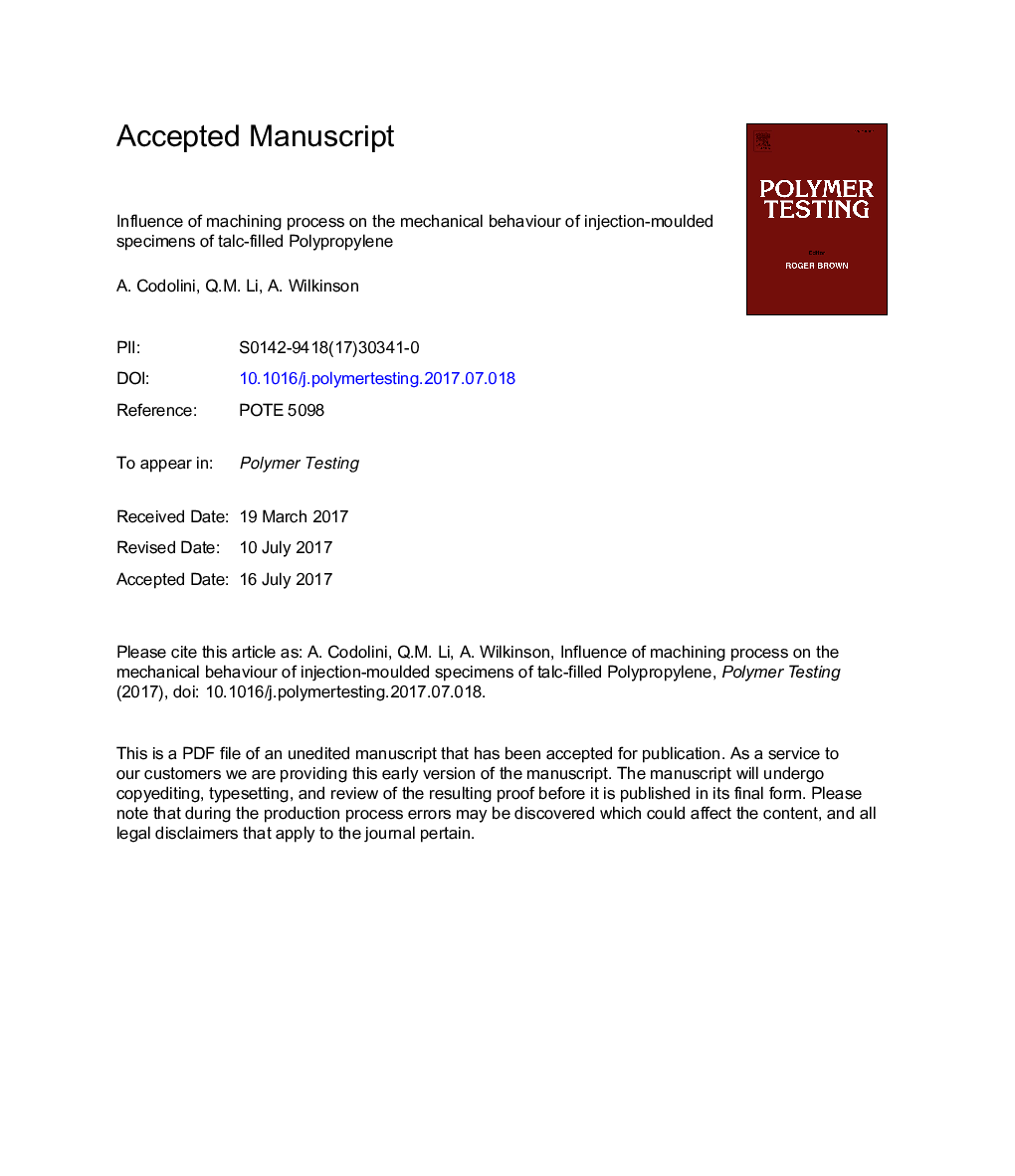| Article ID | Journal | Published Year | Pages | File Type |
|---|---|---|---|---|
| 5205399 | Polymer Testing | 2017 | 10 Pages |
Abstract
The mechanical properties of injection-moulded components are usually obtained by conducting uniaxial tensile tests on dog bone specimens. Current standards do not regulate the machining process used to make the coupons and do not quantify an acceptance limit of the surface roughness. The surface qualities of milling, laser cutting and water jet cutting were examined in this study for 18% talc-filled Polypropylene using optical measurements. It shows that the machining processes influence the surface roughness of the specimen, leading to different strengths at failure of the same thermoplastic material. The specimens machined by the water jet technology produced the roughest sample edges and exhibited the lowest resistance to failure in tensile tests. On the contrary, the milling process generated the best edge quality, which showed repeatable testing results.
Related Topics
Physical Sciences and Engineering
Chemistry
Organic Chemistry
Authors
A. Codolini, Q.M. Li, A. Wilkinson,
